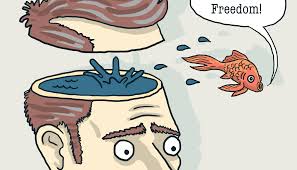
Breaking News
 AI-Powered "Digital Workers" Deployed At Major Bank To Work Alongside Humans
AI-Powered "Digital Workers" Deployed At Major Bank To Work Alongside Humans
 New 'Mind Reading" AI Predicts What Humans Do Next
New 'Mind Reading" AI Predicts What Humans Do Next
 Dr. Bryan Ardis Says Food Producers Add 'Obesogens' to Food and Drugs to Make Us Fat
Dr. Bryan Ardis Says Food Producers Add 'Obesogens' to Food and Drugs to Make Us Fat
 Health Ranger Report: Team AGES exposes Big Pharma's cancer scam and threats from AI
Health Ranger Report: Team AGES exposes Big Pharma's cancer scam and threats from AI
Top Tech News
 xAI Grok 3.5 Renamed Grok 4 and Has Specialized Coding Model
xAI Grok 3.5 Renamed Grok 4 and Has Specialized Coding Model
 AI goes full HAL: Blackmail, espionage, and murder to avoid shutdown
AI goes full HAL: Blackmail, espionage, and murder to avoid shutdown
 BREAKING UPDATE Neuralink and Optimus
BREAKING UPDATE Neuralink and Optimus
 1900 Scientists Say 'Climate Change Not Caused By CO2' – The Real Environment Movement...
1900 Scientists Say 'Climate Change Not Caused By CO2' – The Real Environment Movement...
 New molecule could create stamp-sized drives with 100x more storage
New molecule could create stamp-sized drives with 100x more storage
 DARPA fast tracks flight tests for new military drones
DARPA fast tracks flight tests for new military drones
 ChatGPT May Be Eroding Critical Thinking Skills, According to a New MIT Study
ChatGPT May Be Eroding Critical Thinking Skills, According to a New MIT Study
 How China Won the Thorium Nuclear Energy Race
How China Won the Thorium Nuclear Energy Race
 Sunlight-Powered Catalyst Supercharges Green Hydrogen Production by 800%
Sunlight-Powered Catalyst Supercharges Green Hydrogen Production by 800%
Americans' average attention span plummets to just 47 seconds, new survey finds

A new national survey conducted by The Ohio State University Wexner Medical Center reveals that the average time Americans can stay focused on a computer task has plunged from 2.5 minutes two decades ago to a startling 47 seconds today – a 69 percent decline.
The survey of 1,000 adults, conducted in May 2025, found that three out of four Americans admit they struggle to concentrate due to stress (43 percent), poor sleep (39 percent) and constant digital distractions (35 percent). (Related: What stress does to you: learn to control your stress reaction type.)
Dr. Evita Singh, a psychiatrist at Ohio State, said this dramatic shift is changing how Americans think, work and connect. Singh explains that what many perceive as a clinical attention deficit may actually be a result of sheer exhaustion.
"The stress and the ruminating and thinking about things over and over in your mind can certainly impact attention span and the ability to focus," said Singh. "Often when patients come to see me, they're worried about their ability to focus, and there's a good chance that it ends up being because they're so stressed out or they're anxious. So we work on treating that."
While digital notifications are a well-known distraction, the survey found Americans are also pointing fingers at multitasking, boredom, poor nutrition, lack of physical activity and underlying conditions like attention deficit hyperactivity disorder (ADHD). Singh even claimed that multitasking in particular may be doing more harm than good.
"When people are multitasking, when they have so many things in their mind that they're thinking about, they can get exhausted," Singh said. "And then it's really hard to enjoy things, which can then lead to depression or anxiety."
Research reveals hidden stress triggers hurting your focus
Professor Gloria Mark of the University of California, Irvine, confirms what Singh sees in patients with hard data.
Mark, who spent over 20 years tracking exactly how and why people lose focus, conducted her research based on wearable sensors and digital activity logs from real-world office settings. "We've found a strong correlation between short attention spans and high stress levels," Mark said.

 He 3D Printed a Whole House
He 3D Printed a Whole House

